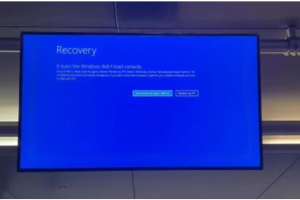April 02, 2024 – Microsoft engineer Wedson Almeida Filho recently announced via email that, in close collaboration with the Rust for Linux project, a new patch has been released to revolutionize module initialization within the Linux kernel.
According to Filho, this latest development is part of Microsoft’s commitment to fostering the growth of Rust within the Linux ecosystem. The patch enhances the Allocation API for Rust kernel code and introduces the concept of in-place module initialization for Rust kernel modules.

Previously, module initialization in the Linux kernel required the creation of an instance that would then be moved to a designated memory space. However, with the deployment of this new patch, modules can now be initialized directly at their intended memory locations. This elimination of unnecessary memory allocation enables modules to handle complex data structures, such as locks, more efficiently.
The implications of this development are profound. By leveraging Rust’s in-place initialization capabilities, kernel developers can boot modules with greater efficiency and optimize memory usage. Furthermore, the patch facilitates seamless integration between Rust-driven modules and those written in C, bridging the gap between traditional and modern kernel development practices.












